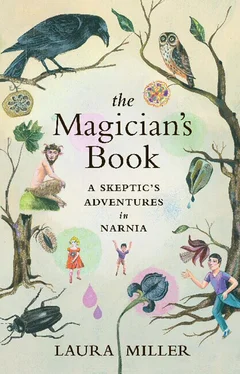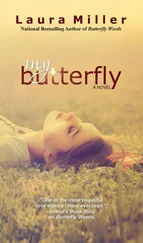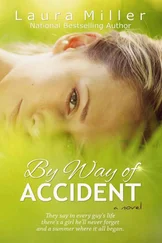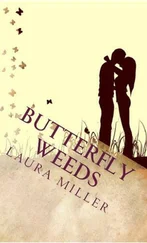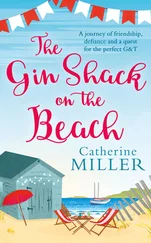In the Chronicles, Lewis endeavored to create symbols like this; so, too, did Tolkien with The Lord of the Rings. That contemporary readers often mistook those books for allegories only served to illustrate for Lewis the degree to which readerly sophistication and versatility had atrophied in modern times. People really only knew how to read realistic fiction. Lewis (unlike Tolkien) appreciated quite a few realistic novels, but that was merely one arrow in literature’s quiver! As a writer, he could move easily in and out of various literary modes in the course of a single book. In The Magician’s Nephew, for example, the confrontation between Jadis and Digory’s aunt Letty in Letty’s London parlor is farce, with Aunt Letty assuming that the tall, outlandishly dressed Jadis is a circus performer and her Charnian incantations the mutterings of a drunk. Tolkien, had he read the book, would probably have regarded this scene as unconscionable levity — Jadis, after all, is Lewis’s villain; it’s hard to imagine the creator of Sauron allowing him to appear so ridiculous, however briefly.
This doesn’t keep Jadis from serving as a credible menace later on, insinuating and manipulative when she tempts Digory in the garden. Aunt Letty’s parlor, where mattresses are mended and adults make remarks alluding to an alternate, Trollopian narrative taking place offstage (“Andrew, I wonder you are not ashamed to ask me for money”) coexists in the same story as the Wood Between the Worlds and the mystical creation of Narnia. The fracas Jadis causes on the streets of London when she commandeers a hansom cab is Dickensian comedy; the scene in the garden is dreamlike and allegorical. Today, I wonder how Lewis managed to make all this feel as if it belongs together, in the same book. As a child I took it for granted, though if asked I might have said that The Magician’s Nephew was as rich as plumcake.
This is the other side of Neil Gaiman’s boyhood intimation that Narnia is an infinite number of stories waiting to happen. Countless stories went into it, and countless stories come out of it. Narnia is the country of literature, of books, and of reading, a territory so vast that it might as well be infinite. This is why the conclusion of The Last Battle feels like such a mistake, and no doubt why everyone I interviewed for this book described it as their least favorite Chronicle. After the destruction of the world, it is revealed that the Narnia we have known in the previous six Chronicles is “only a shadow of a copy of something in Aslan’s real world.” Everyone of merit is ushered into the “real Narnia,” a Platonic paradise where colors are brighter, the fruits are infinitely richer and sweeter, and “every rock and flower and blade of grass looked as if it meant more.”
This is a far cry from the voice that told of trees stirred by “a hushing, ruffling sort of wind which meant that rain was coming soon.” Lewis, reaching for celestial beauty, attains only a hallucinatory hyperrealism that unstitches Narnia from the humble, medieval details that made it live. The Last Battle was the one Chronicle I didn’t reread very often. The ending left me feeling empty and gloomy instead of satisfied.
Jonathan Franzen calls The Last Battle a “weak finish” that “quickly turns into that which [Lewis] has amazingly avoided” in the previous six books; that is, a story overwhelmed by its preacherly and philosophical elements. For Neil Gaiman, the book “has got a few good bits in: it’s got the dwarves, it’s got ‘further up and further in,’ and yes, we’ve gotten to see a couple of characters we’d loved who are dead.”
“Although,” I interjected, “have you noticed that one of the best, Puddleglum, doesn’t get any lines? That really disappointed me, but at the same time I know Lewis could never have let Puddleglum be his usual self, that pessimistic Marsh-wiggle we all loved, because how could he say something Puddleglummish in that completely perfect and therefore completely dull Narnia?”
“That astonishingly dull Narnia! I can’t imagine that any kid who read the books and wanted to go to Narnia — and I assume that any kid who’d read the books would want to go — ever wanted to go to that Narnia. As a kid, you edit out The Last Battle in a way because it’s not true. ”
The perfected Narnia that Lucy and her friends arrive at can never actually be Narnia, because it is a place without conflict, without danger, without error, without change. Without any of those things, you can’t have a story. And without stories, there is no Narnia.
If you read enough, and C. S. Lewis certainly did that, you come to see that every great story contains elements — talking beasts and brave orphans, lonely girls and dying gods, trackless forests and perilous cities — that can and have been used and reused over and over again, without becoming exhausted. If anything, they grow denser, richer, more potent with each new telling. Every great storyteller contributes a little to this patina, but storytellers are human, and inevitably those contributions have flaws. Myths and stories are repositories of human desires and fears, which means that they contain our sexual anxieties, our preoccupation with status, and our xenophobia as well as our heroism, our generosity, and our curiosity. A perfect story is no more interesting or possible than a perfect human being.
A long time ago, I opened a book, and this is what I found inside: a whole new world. It isn’t the world I live in, although sometimes it looks a lot like it. Sometimes, though, it feels closest to my world when it doesn’t look like it at all. This world is enormous, yet it all fits inside an everyday object. I don’t have to keep everything I find there, but what I choose to take with me is more precious than anything I own, and there is always more where that came from. The world I found was inside a book, and then that world turned out to be made of even more books, each of which led to yet another world. It goes on forever and ever. At nine I thought I must get to Narnia or die. It would be a long time before I understood that I was already there.
Among the many people who shared their memories with me, I would like to thank in particular those individuals who agreed to be interviewed for this book: Wilanne Belden, Tiffany Lee Brown, Susanna Clarke, Jonathan Franzen, Neil Gaiman, and Pam Marks. The Marion E. Wade Center at Wheaton College proved invaluable in my research into the life of C. S. Lewis, especially the efforts of Laura Schmidt, archivist. In Headington, Oxfordshire, Chelsea Carter and Theresa Kipp of the C. S. Lewis Foundation gave me a welcoming and informative tour of the Kilns and its grounds, and in San Diego, Nancy Miller helped me reconnect with the past.
Several people took the time to discuss various aspects of this book with me. Thanks to Michael Chabon, John Clute, Richard Dienst, Jennifer Egan, Gavin Grant, Colin Greenland, P. J. Marks, Jennifer Reese, and Gary Wolfe. For general encouragement, I’m very grateful to Mignon Khargie, Jonathan Lethem, Daniel Mendelsohn, and Lorin Stein. Lydia Wills helped me wrestle a mass of ideas into coherence, and Michael Pietsch brought the whole thing into focus.
A few people provided inspiration without realizing it. One is Philip Pullman, whose intelligence, curiosity, and good humor are well worth emulating. Two more are Corinne and Desmond O’Hehir, who I hope will someday read about themselves here and forgive me for it. Special thanks to their parents, Leslie Kauffman and Andrew O’Hehir.
Laura Miller is a journalist and critic. She is a cofounder of Salon.com, where she is currently a staff writer, and is the editor of The Salon.com Readers Guide to Contemporary Authors . A regular contributor to the New York Times Book Review, her work has also appeared in The New Yorker, the Los Angeles Times, Time, and other publications. She lives in New York.
